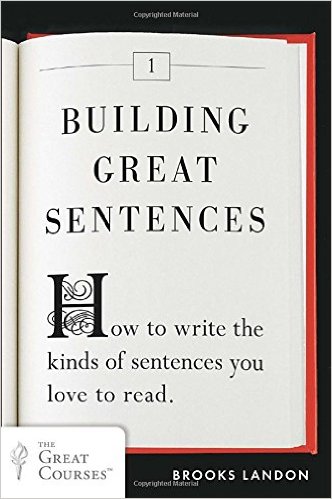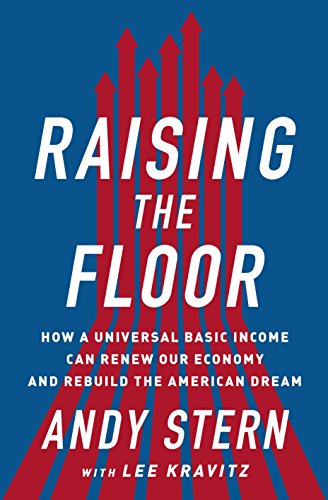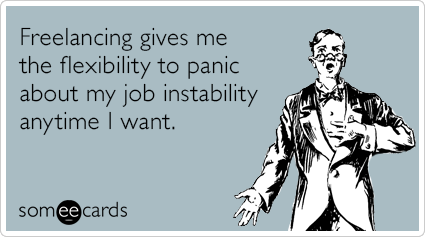
After 10 so-so years of teaching, I decided not to renew my contract and seek a career as a freelancer. I know that’s a general term. After all, you could conceivably be a freelance beggar if you wanted to use that terminology. After all, you would only be accountable for yourself.
It hasn’t gone that bad for me, but it also hasn’t been easy. I’m finding some regular freelance clients while driving for Uber at night, so I’m double freelancing if anything.
I wanted to share my daily schedule for those who are thinking about dipping their toes in the freelance writing field. First, know that dipping your toes won’t get you wet because it’s exxxtremmely time consuming to make any sort of return on freelancing. But once you get there, it’s worth it.
Or so I’m told.
Now here, for your education, is my daily schedule.
8:30 am: Alarm rings. I turn off alarm.
9:30 am: Alarm rings again. I think about getting up but fall back asleep.
10:00 am: Alarm goes off a third time. I finally wake up. Spend next hour cursing self out for sleeping so late. Check email; the most pointless and time-consuming first.
11:00 am: Get out of bed, curse self out for another 10 minutes.
11:10 am: Forgive myself in the mirror and tell myself that I’m going to have a “great and productive day”
11:15 am: Spend far too long thinking about what to make for breakfast when I know damn well that I’m having eggs.
11:30 am: Eat eggs, read news. Check Wikipedia page of band I liked in high school. Debate someone I barely know on Facebook about whatever Donald Trump said the day before.
12:30 pm: Wonder out loud where time went and curse self out for spending so much useless time on internet. Make lunch.
12:45 pm: Turn on Uber app for first ride of the day. Get aggravated that no one requesting a ride. Decide to drive closer to downtown.
1:00 pm: Receive first Uber ping. Passenger travels around corner and I make $1.47.
1:15 pm: Receive 2nd Uber ping. Passenger cancels when I’m 1 minute away. Decide to drive to coffee shop.
1:30 pm: Get to coffee shop and order coffee. Read remaining email and engage in one last debate over latest conservative outrage. Check out Craigslist, Journalismjobs.com, and Upwork for gigs.
2:00 pm: Finally begin work on 7000 word ebook project and forget how easy and enjoyable it is to write and edit.
4:00 pm: Stomach rumbles. Debate eating lunch while reading about what obscure actor is doing now and get disappointed in result.
4:30 pm: Eat lunch. Debate doing another Uber drive, but take walk around block instead.
5:00 pm: Work on blog article assignment. Once again feel the thrill and enjoyment of writing exactly what I wanted to say.
6:00 pm: Take a minute to enjoy being productive while simultaneously being unproductive.
6:10 pm: Back to work on 2nd blog article, then edit with Hemingway App. Realize my 1st draft wasn’t as great as I thought and Hemingway would hate me. Fix mistakes and tighten up writing.
7:30: Send out 5 responses to Craigslist ads. Send 5 pitches on Upwork and another 5 for Journalismjobs. Realize I forgot to change pitch email on at least half my pitches.
8:00 pm: Get email from Listedby.com, asking me to invest in Miami real estate. Realize I was data-mined by Craigslist ad.
8:05 pm: Go to bathroom 6 times in next half hour due to day’s coffee intake.
8:20 pm: Realize I’m out of gas (figuratively). Turn on Uber app and plan to drive back towards home.
8:25 pm: First night Uber ride, which takes me in opposite direction of home.
9:00 pm: Get home. Pace around house for 15 minutes then make dinner.
9:20 pm: Eat dinner. Watch 15 minutes of TV.
9:45 pm: Go for short bike ride and listen to podcast.
10:15 pm: Back to different coffee shop that’s open until midnight.
10:20 pm: Sit outside, read a book and pretend I’m in 1920s Paris.
10:45 pm: Write Medium article or post on my blog.
11:15 pm: Write screenplay, the most important writing to me that gets the least amount of time. Scribble madly.
12:00 am: Realize I ran out of time just when it was flowing.
12:05 am: First late night Uber drive, usually from strip club. Drive passenger silently. Mentally figure out how much money I need to make before I can go home.
12:30 am: Promise myself I’ll be home by 1 am and be in bed by 2.
1:00 am: Surge goes on. Decide I’ll drive for another half hour.
2:30 am: Get home. Eat salty snack and watch 1/2 half or hour of TV, only half paying attention.
3:30 am: Read in bed. Panic at how late it is.
4:00 am: Go to bed.
You too can become a freelancer if you have the stomach to break promises to yourself, beat yourself up, dust yourself off, actually do some work, then have a little fun before driving a bunch of drunks around town and praying that they don’t puke in your car.
I know you’ve got it in you.
Good luck and write on!!!















 Through a bit of old-school investigative journalism mixed with nights of dumpster foraging and some help from Ukrainian hackers, Mindwafers was able to uncover the text of Donald Trump’s much talked about immigrant values test.
Through a bit of old-school investigative journalism mixed with nights of dumpster foraging and some help from Ukrainian hackers, Mindwafers was able to uncover the text of Donald Trump’s much talked about immigrant values test.















